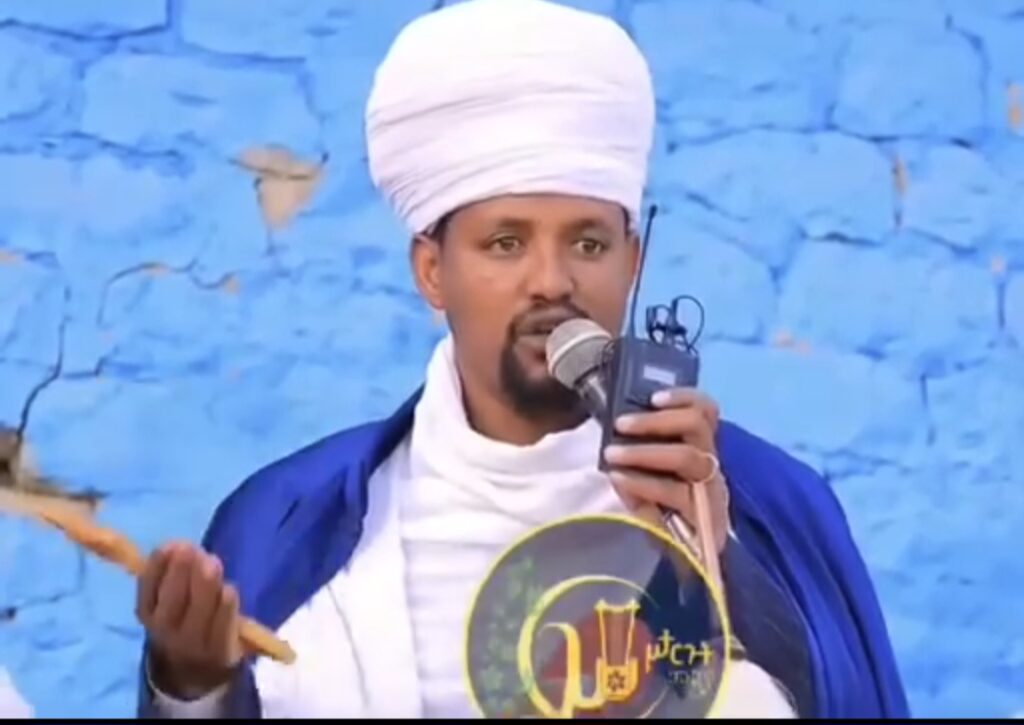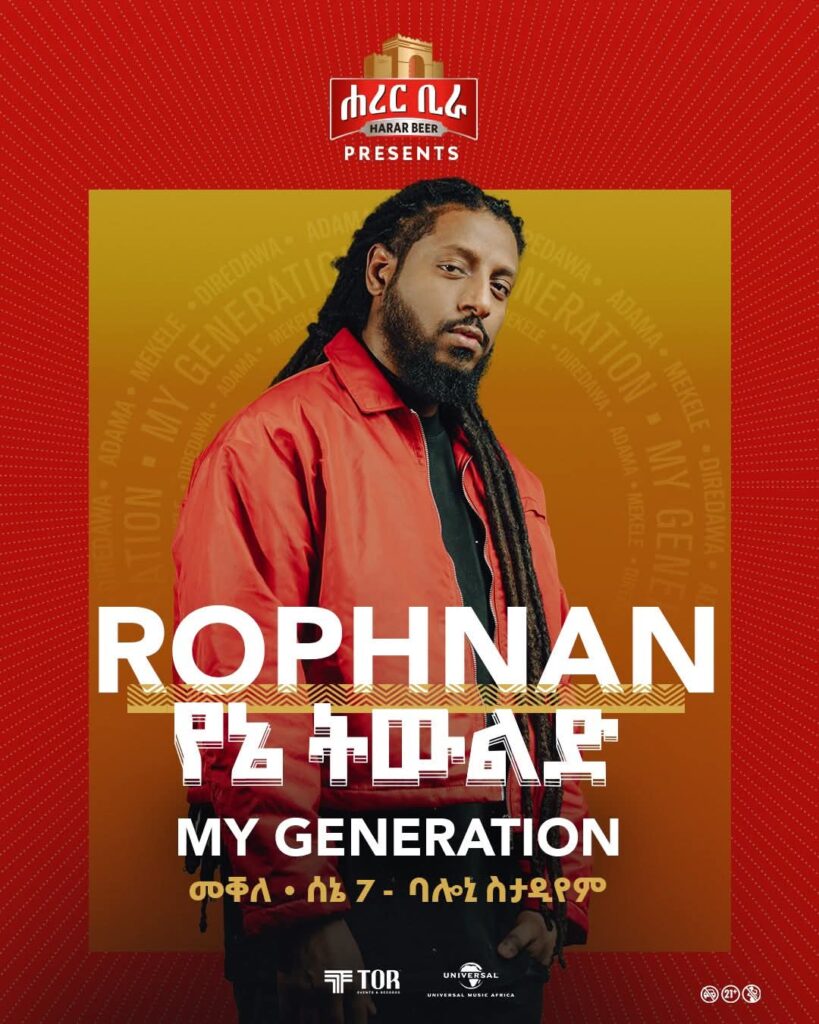Mekelle፡Telaviv, Nairobi, Pretoria, London, (Tigray Herald).
‘Still speechless’: Rophnan ignites Mekele in emotional return to Baloni Stadium
By Ras Tesema Nadow
Ethiopia’s genre-bending music star delivers a cathartic, unforgettable night in a city rising from grief despite pushback from religious leaders
For over two and a half hours, the city of Mekele pulsed with the sound of hope, healing, and homecoming as Ethiopia’s musical powerhouse, Rophnan, took the stage at Baloni Stadium delivering a performance that was more than a concert. It was a moment. A memory. A movement.
“I’m still speechless,” he wrote in a heartfelt message after the show. “Mekele, you gave me something I’ll carry with me as long as I live.”
From the first beat of Wegahta to the echoes of MK, Rophnan’s voice fused with tens of thousands of Mekele’s own, singing not just lyrics but lived experiences. The crowd, shoulder to shoulder under the open sky, responded to every note with unfiltered passion hands raised, hearts open, and eyes filled with the kind of joy that only music can bring after seasons of silence and sorrow.
“You reminded me why I do this,” he said. “Tears of joy.”
Indeed, this wasn’t just a performance. It was a cultural communion a rare and raw display of unity, resilience, and return. Baloni Stadium overflowed not just with fans, but with a city’s spirit reborn. Every smile, every cheer, every tear of joy reminded the artist and audience alike: this is why we do this.
Rophnan’s set list was an emotional rollercoaster Qal, Ajaib, Gobe, Gamo Dare, Atiyo, Senaye, Kenenise, Nor, Yamagnu Quine, Desse, Shegiye each track a thread connecting personal truth to collective memory. Mekele sang every word, louder than any amplifier.

A moment of friction with religious authorities
Not everyone welcomed the concert. In the days leading up to the event, some senior religious leaders in Tigray publicly condemned the gathering. Their criticism wasn’t aimed directly at Rophnan but rather at what they saw as a deeper contradiction: celebration and dancing in a land still digging mass graves.

Church figures, particularly from the Tigray Orthodox establishment, voiced concern that high-ranking Tigray political and military leaders were seen dancing in concert halls and night venues while thousands of families still search for their missing loved ones.
“They should be fasting, not feasting,” one priest told local media. “There is no joy while so many of our sons and daughters remain unburied.”

For the clergy, these public displays of joy risked appearing as a moral betrayal of the war’s victims. In their view, the leadership should set a tone of solemnity, repentance, and remembrance not jubilation.
But their message did not resonate with everyone.
A generational rift: ‘We didn’t beat the drums of war’
The younger generation in Tigray, many of whom bore the emotional weight of the genocidal war without ever having participated in the politics that preceded it, openly rejected the priests’ rebuke.
“We didn’t beat the drums of war,” said 20-year-old college student Biruk Desta. “We inherited trauma, not power. All we want is to heal.”
For them, joy is not a sign of disrespect it is survival. In the absence of justice, compensation, or full truth-telling, moments of community celebration are all some have.
On social media, thousands of young Tigrayans defended the right to gather, dance, and sing not in forgetfulness, but in defiance of what the war tried to erase.
“They want us silent, broken, obedient,” wrote one TikTok user. “But we’re still here. Still breathing. That’s why we sing.”
Many young people viewed the concert as a cultural awakening, an assertion that Tigrayan identity is not defined only by loss, but also by resilience, art, and collective memory.

A night for the books. A city forever in the heart of an artist. And a stadium filled not just with sound but with soul.
With humility and deep emotion, he closed his message with a prayerful farewell: “Thank you MEKELE. ይፈትወኩም! I love you with everything I have.”




